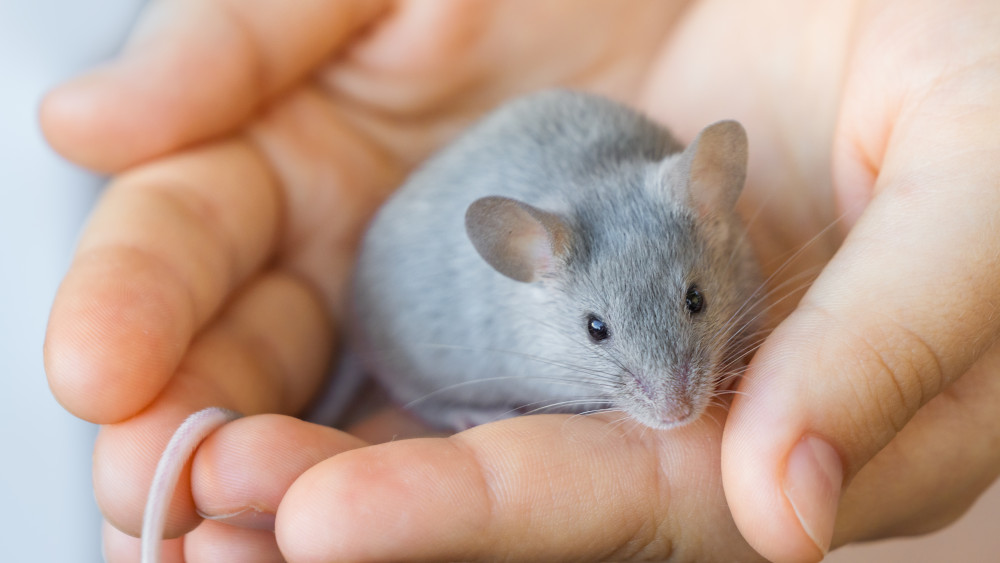How should I interact with and handle my mice?

Mice may find handling very stressful if they not used to positive, predictable human interactions and gentle handling. They have a curious nature and can be habituated to human interactions and handling using positive reinforcement (reward-based training using food treats and other things they value). They must always be treated with patience, kindness, and respect and they must never be punished.
Mice should be given choice about whether they want to interact with you and should not be forced. Most mice who are habituated to human interactions will approach a hand introduced into their enclosure and can then be easily picked up using one of the techniques described below.
Mice not accustomed to being handled or who are frightened may jump and run and may be inclined to nip their handler. Mice should be housed in a stable group of familiar mice as they need compatible company to experience good welfare. Mice who are housed individually may be more aggressive and apprehensive than those housed in groups. Be careful when approaching a nervous or frightened mouse.
Children should never handle mice unsupervised, and it may be best if young children do not handle them at all. Unfortunately, not all children are adept enough, or old enough, to safely hold a mouse (especially if the mouse wriggles). Teach your children how to safely handle your mice, and always closely supervise small children.
Before trying to pick up one of your mice, let the mouse approach and smell your hand if they want to. Avoid picking up a mouse who does not choose to approach you and interact. Once they do approach and sniff you calmly, you can then pick them up by placing one hand under their belly and then gently scooping them into your cupped hand. Another way to pick up your mouse is to encourage the mouse to go into a tunnel or scoop them up with a bowl and then tilting the tunnel/bowl to gently exit the mouse into your cupped hand.
Once you have the mouse in your cupped hand, the palm of your other hand can then be cupped loosely over the mouse to keep them safe while keeping your hand and mouse close to your body. Do not hold them up high, as they could injure themselves if they jump or fall.
Mice should not be lifted by the tail as this can be stressful and may injure them.
Mice should not be held by the scruff of the neck. Although they will usually stay still, it’s because they are frozen with fear. While it may allow for a close examination and treatment, it is really distressing for the animal.
Was this article helpful?
This work is licensed under a Creative Commons Attribution-NonCommercial-NoDerivatives 4.0 International License.


